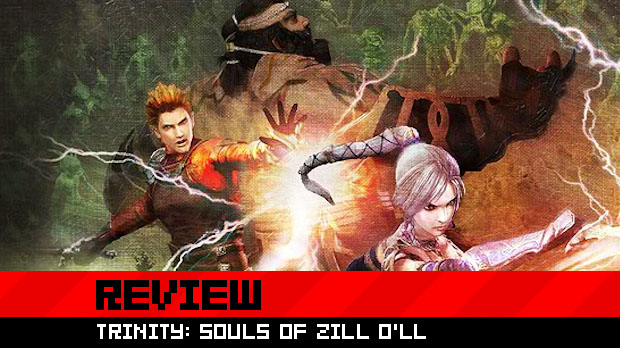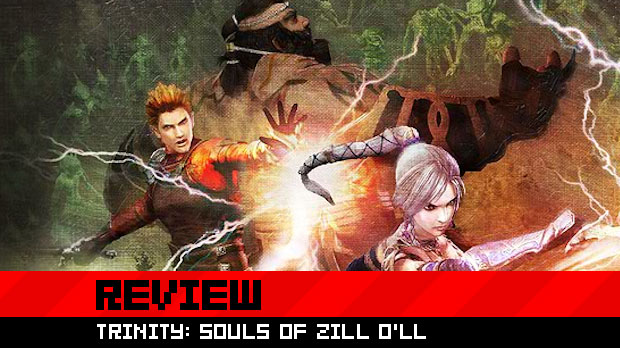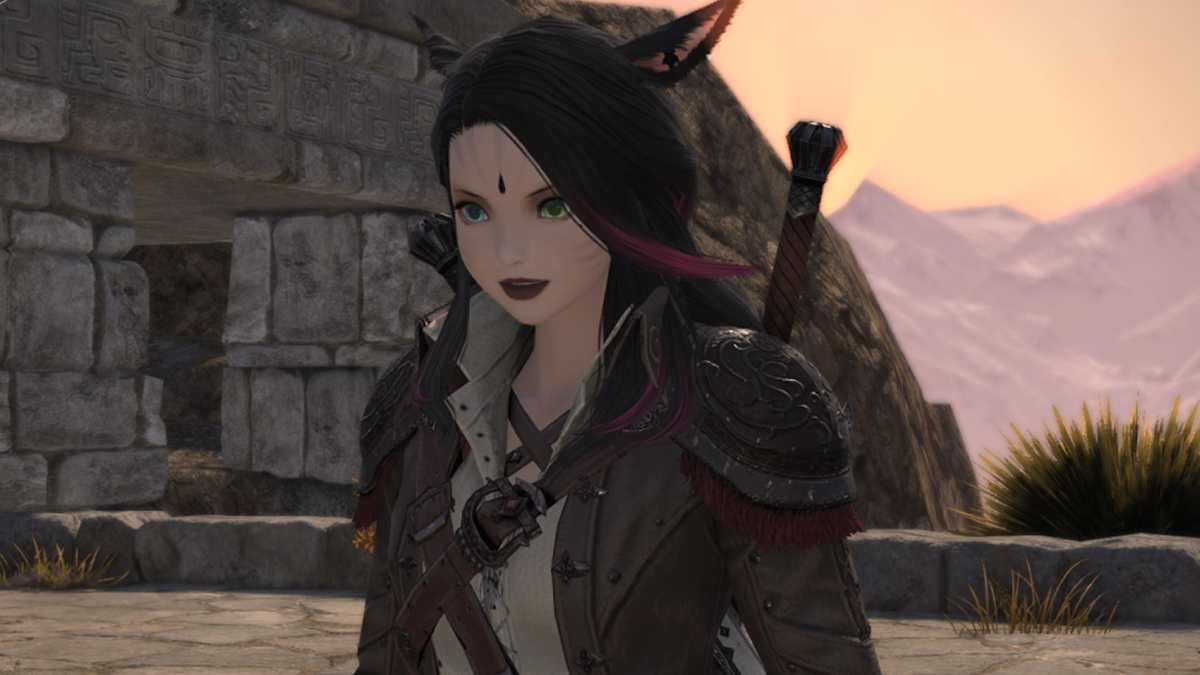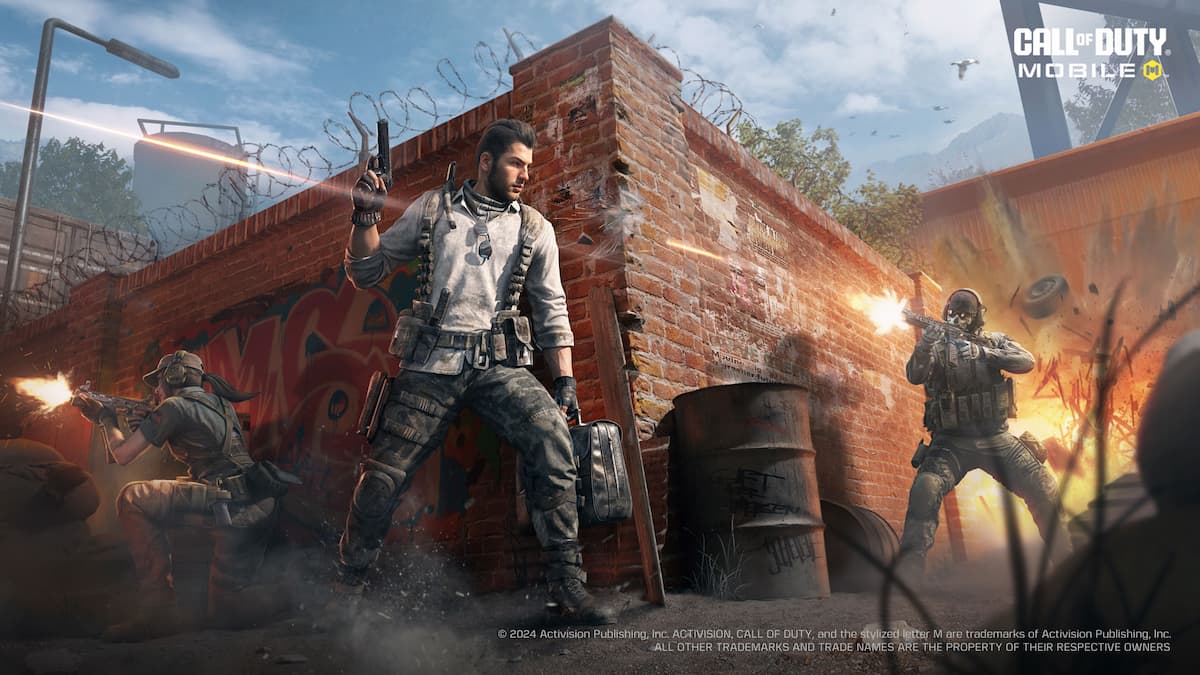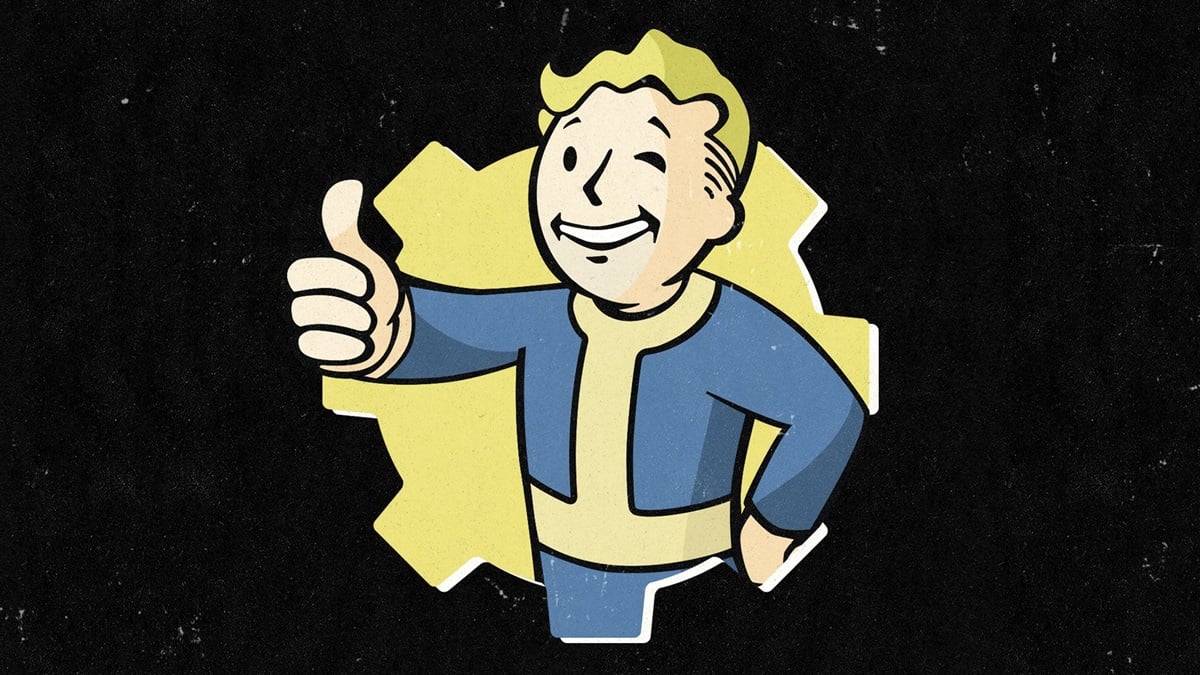Omega Force is best known for the Dynasty Warriors series and its related hack n’ slash spin-offs, due mostly to the fact that it’s made a billion of them. In fact, the last truly unique game Omega Force made was the rather good Bladestorm back in 2007.
Trinity: Souls of Zill O’ll is the first deviation from the studio’s formula in almost four years. Unfortunately, a change of pace is not always for the better.

Trinity: Souls of Zill O’ll (PlayStation 3)
Developer: Tecmo Koei
Publisher: Omega Force
Released: February 8, 2011
MSRP: $59.99
Trinity: Souls of Zill O’ll is an action roleplaying game in which one controls a party of three distinct warriors. While the combat maintains a familiar hack n’ slash feel, the attack variety, quest emphasis and RPG elements put one more in mind of Capcom’s Monster Hunter than anything from the Warriors series.
Players switch between characters at any time, and each one has access to a unique set of abilities. Areus is skilled in swordfighting and offensive magic, Dagda is pure physical attack, and Selene is a fast “rogue” character, with stealth and status-inducing powers. She’s more or less useless, so it’s highly recommended you focus on Areus and Dagda.
Each character levels up for stat increases, and the entire party earns Skill Points per kill, which can be spent on strengthening individual abilities. In addition, there’s a huge amount of weaponry and accessories to equip, with a range of passive bonuses such as element damage/resistance, faster attacks, and regenerating health.

Should your player character die, you’ll jump into the body of another one, and the dead character has time to automatically revive, albeit with a reduced maximum HP. You can also build up a meter which, when full, allows the party to perform a devastating area attack that replenishes health with each successful kill. When boss characters are near death, a Trinity Attack can be pulled off, with Areus, Dagda and Selene performing a brutal finisher.
On paper, Trinity sounds like a fine game, and in the opening chapter, it’ll even feel like one. After the first hour, however, any promise it might have had is systematically stripped away to reveal what is, at its core, a soulless, sterile, miserable little experience that demands entirely too much time and energy.
Firstly, much of the game is centered around exploration, but not in the way you might imagine. The world map is full of towns, which are essential for quests, story progression, and item shopping. Sadly, none of these towns allow for physical exploration and are instead represented as a series of brown menus. You are expected to imagine a living, breathing world, when all you get are a series of washed out images and words. Nearly every town is exactly the same, save for the occasional missing tavern or shop.

It wouldn’t be so bad if these brown menus didn’t make up almost half the game. You’ll be forced to go between dungeons and towns throughout the entire experience, accepting pointless quests that have no bearing on the story. A lot of the game’s story takes place in these towns, with silent, text-based dialog communicating the exposition. Even worse, there are several moments where the game forces you to go from town to town, trying to find a hidden character by wandering around the world in pursuit of menus and meaningless text. Sometimes you’re not even granted the benefit of an actual objective, instead expected to wander around the world map in the vain hope that something will happen.
This stunted, repetitive, droning way of propelling the story forward is Trinity‘s bread and butter, and it never ceases. The vast majority of the game actually has nothing to do with the story at all, several entire chapters ( and there are only five) dedicated entirely to the acceptance of banal sidequests until something interesting happens. One chapter is a series of the exact same mission, repeated over and over again, in different dungeons. In fact, it’s not until the last hour of the game that anything approaching a compelling plot actually occurs, but by that point, it’s far too little, and entirely too late.
If you took out all the instances where the game desperately, blatantly stalls for time, I’d wager you’d be lucky to have two hours of content.

Also, for a game that calls itself Trinity, it is obsessed with making you use less than three characters at a time. Up until the closing episodes, the party is constantly splitting up, and almost the entire third chapter has Areus fighting solo. What makes this worse is the fact that the game balances the combat for three characters and never scales itself to a party of one. So, if you’re not fighting with the entire team, you have three times as many enemies, all training their attacks on you. With no supporting characters, you also lose the ability to jump into another body upon death, so not only is the game three times as hard, there is also no forgiveness whatsoever. It’s not fun at all, and feels horribly unfair, especially when you constantly get battered with knockdown attacks that make the game feel like little more than a round of bullying.
Even the combat, which should provide a welcome break from the infuriating town sections, is boring in its own right. Although you have access to a range of attacks, there’s no real combo system to speak of. You simply spam buttons until everything dies, which could take a while, as even regular enemies seem to be made out of steel. So many opponents take entirely far too long to put in the ground, and before the game is over, you’ll have deduced that combat is simply not worth the hassle in many instances, and it’s not unlikely that you’ll run through dungeons, avoiding engagements with trivial monsters that take an idiotic amount of time to defeat.
Major enemies are weak to certain elemental attacks, and hitting them with the corresponding ability at the right moment can “break” them, stopping their offense and lowering their defenses for a limited time. While an interesting idea, this also devolves into cornball repetition, as you simply pull off the same attacks for long periods of time. Not only that, but the moments in which enemies leave themselves open to elemental attacks are incredibly fleeting, while attack animations are slow, so you have to essentially guess when to attack and hope you hit your target.

From beginning to end, it feels like Omega Force had zero respect for the player’s time when making Trinity. Between the fetch quests, the shamelessly repeated dungeon areas, the “keep visiting different towns over and over and hope for the best” missions and the bosses that take three times longer than they should to die, everything about this game feels like a cruel waste of life. The game took me thirty hours to beat, and I am absolutely unfulfilled. In fact, I feel terrible that thirty hours of my precious time were spent doing huge amounts of nothing at all.
If you’re a fan of “collect ten items” quests and the constant revisiting of old dungeons, then sure, Trinity has a lot to offer you. There are tons of optional missions, and a combat arena in which you get to pay huge sums to money to fight tough monsters for disproportionately meager rewards. It will also take you a long time to master each of the three characters and their skills. However, the spam-heavy combat, the terrible presentation and the lack of variety will turn most players away.
To its credit, Souls of Zill O’ll is a fairly pretty game, with colorful environments and a subtle visual effect that gives everything a slightly handpainted aesthetic. However, there is no option for adjusting the brightness, and some of the game’s darker areas are damn near impossible to navigate without messing with your TV settings. Sound-wise, the voice acting ranges from passable to awful, but the soundtrack has a pleasant range of rousing orchestral themes that manage to be far more memorable than they should.

The great tragedy with Trinity: Souls of Zill O’ll is that it didn’t have to be as bad as it is. If Omega Force had bothered to make the game feel a little more involved and less sterile, had the story progression not been a series of menus with little player feedback, and had the combat been a little deeper, with less party breakups or at least enemy scaling, then it could have been a pretty damn good RPG. Instead, the game outstays its welcome after an hour, and ranges from boring to deeply unpleasant for the remaining twenty-nine.
Souls of Zill O’ll is simply not worth your time. In fact, it’s an active waste of it. I wouldn’t recommend it even during a software drought, let alone a period of time where some genuinely good titles are on the horizon. Omega Force has displayed that it certainly has the potential to make a good action RPG, but that potential has been squandered on what is a poorly presented, stodgily paced, sad little lump of tedium.
